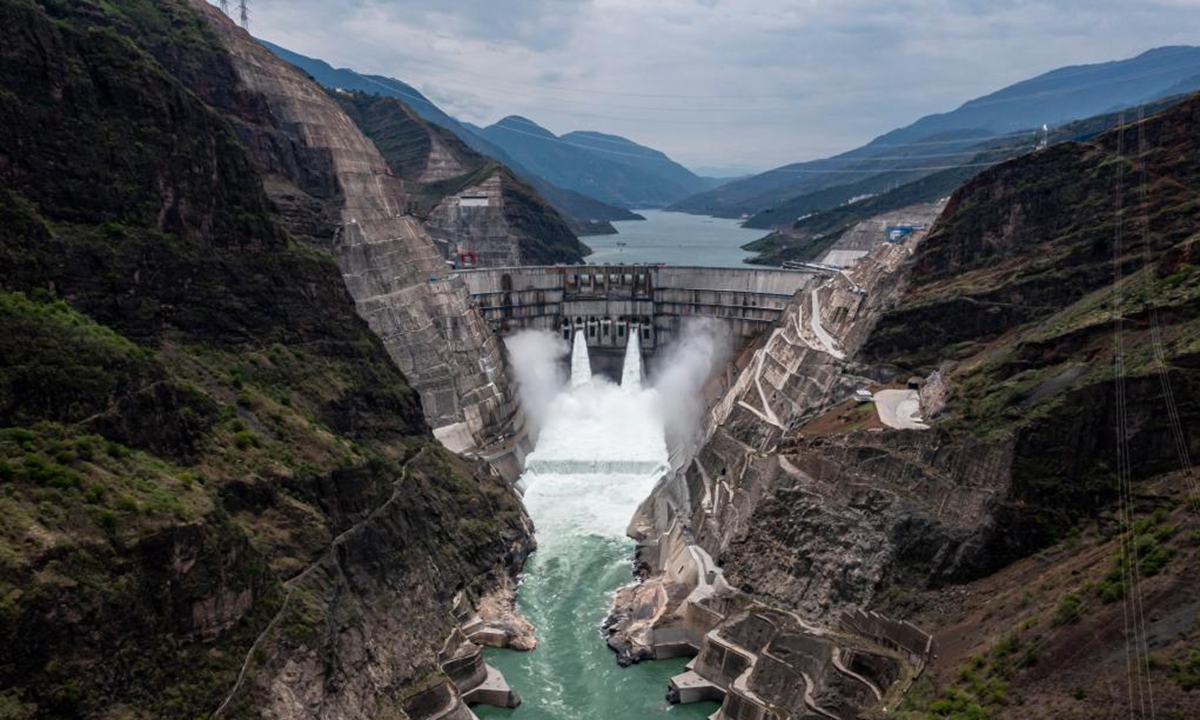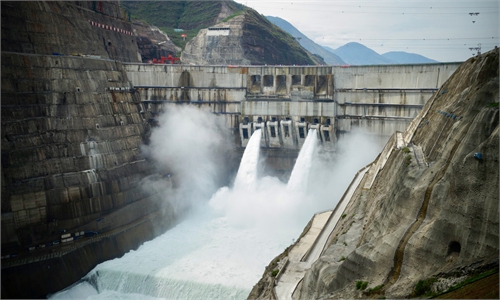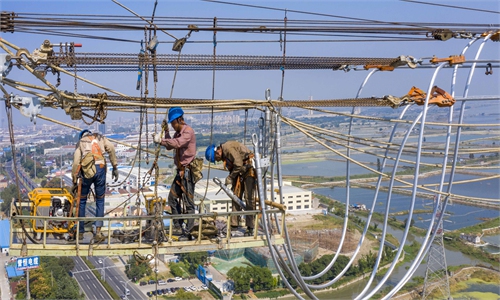6 hydroelectric plants along the Yangtze River generate over 3 trillion kilowatt-hours of power

Aerial photo taken on June 27, 2021 shows Baihetan hydropower station in Southwest China. Photo: Xinhua
Six cascade hydroelectric plants along the Yangtze River have generated more than 3 trillion kilowatt-hours of power, which is equivalent to saving about 910 million tons of coal and reducing close to 240 million tons of carbon dioxide, the Three Gorges Group announced on Saturday night.
The six hydropower plants, including the Baihetan Hydropower Station, the world's largest hydropower project under construction, constitute the world's largest clean energy corridor.
The Gezhouba and Xiluodu are two of the four hydroelectric stations that have generated 51.2 billion kilowatt-hours of clean power since the beginning of the year, a record high.
Currently, the number of hydropower units in operation in the six stations reached 101, with an installed capacity of more than 62 million kilowatts, accounting for about 16 percent of the country's installed hydropower capacity.
After the Baihetan Hydroelectric Station is fully put into operation, it will reach the total installed capacity of 71.695 million kilowatts, equivalent to three times the power output of the Three Gorges Hydroelectric Power Station.
Experts noted that the world's largest clean energy corridor has a large power generation capacity with a strong peak capability which can effectively relieve electricity supply in central and eastern China as well as Southwest China's Sichuan and Yunnan provinces and South China's Guangdong.
The corridor will also play an important role in the safe and stable operation of the power grid, providing strong support for transferring the abundant hydropower from western China to the country's major economic powerhouses in the east.


